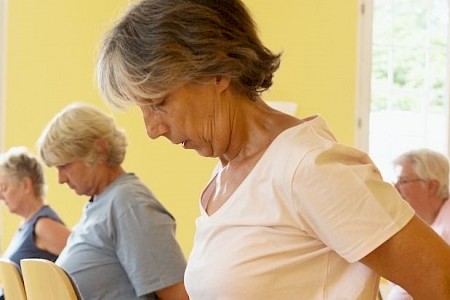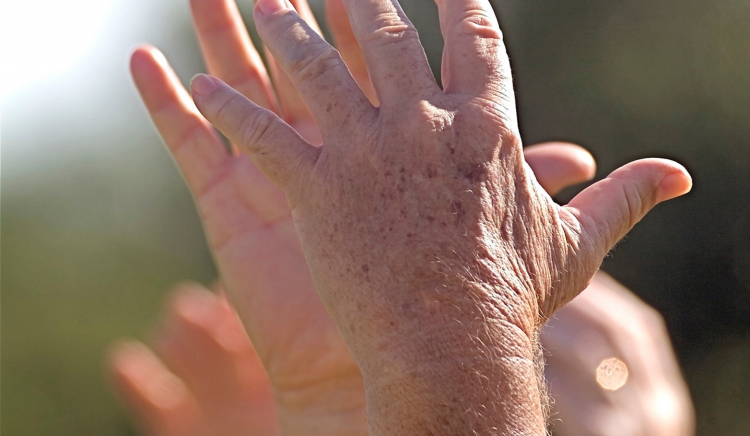We caught up with Lis Duffy who has been teaching free weekly online Tai Chi classes to older people living in Wales during the pandemic. We asked Lis about some of the benefits of teaching online, as well as for some of her tips for practice.
Can you tell us a little about your Tai Chi classes?
Our online Tai Chi Qigong classes are weekly and last about an hour; 45 minutes of standing and seated movements as well as breathwork, finishing with Q&A or chat for 15 minutes.
What are the benefits of doing the online classes?
There is benefit to learning something new online in that no one needs to feel inadequate or embarrassed. There is no competition, no comparing with the person in front of you or beside you and you can focus on your own practice without distraction. We come together from all over Wales and meet people we would never have encountered otherwise. Participating online allows us to try new things without committing to full courses. Learning new skills improves our neuroplasticity, memory and concentration – and ultimately makes us feel good about ourselves.
What are the differences between teaching online and face to face?
Having only ever conducted face-to-face classes, moving to teaching online was a little challenging. However, Re-engage offered me the perfect solution in that the Team deal with the technicalities and I merely show up to do the teaching.
The benefit of teaching online is that more people are able to join our classes. Limited numbers in a face-to-face class, along with public transport restrictions, inevitably leads to people being excluded from their practice with others. The groups who can meet face-to-face benefit from seeing the style of the practice at close quarters and have a deeper understanding of the moves, which is sometimes difficult to relay over the internet.
Some Tips for Practice
- This form of Tai Chi, called Shibashi, can be performed standing or seated – we never sit or lie on the floor. All moves are beneficial, even if they feel and seem lame. It is more than just making shapes with our arms. Even watching others perform the practice generates a sense of calm.
- This is also a preventative medicine practice and improves every facet of our physical body and calms our nervous system. There is value in sitting still for as little as three minutes to focus on slowing the breath. This brings the body back to balance and improves our concentration and coping mechanisms. It is often referred to as Meditation in Movement or Mindful Movement.
- Chi requires building, so regular practice of the synchronised movements with the breathing techniques keeps our wellness stocked up. Within 5 minutes of doing exercise our natural
self-healing process begins.
- Smiling during the practice releases brain chemicals that elevate our mood and can help to reduce physical pain.
-
View
More news

Online Chair Yoga classes for older people
We caught up with Margaret Hudson who's been teaching Chair Yoga to older people across Wales as part of our online exercise programme.
By Re-engage

'What a year it's been for me!'
Call companion coordinator, Jade Colebrook, joined us when she was on furlough last year…
By Re-engage

